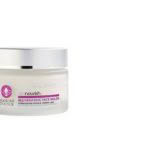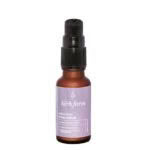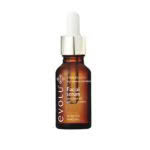Organic and natural skin care products for summer
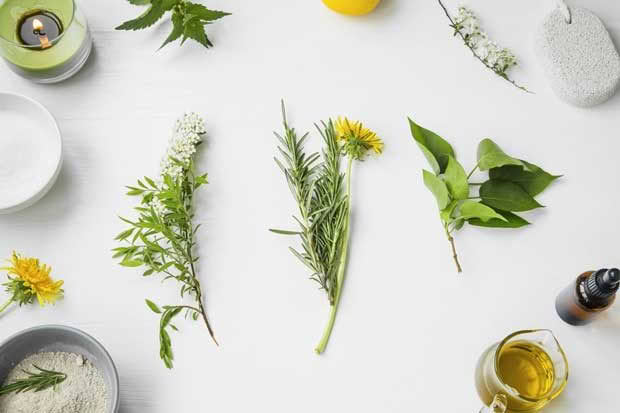
Organic, biodynamic and natural skin care products were once on the fringe. Now they are all the rage.
Words and Styling: Tracey Strange Watts
With the growing demand for green products comes a greater awareness of the ingredients those products contain. “Our devotees are world-conscious eco-citizens who appreciate style, and are seeking results,” says Antipodes’ Elizabeth Barbalich.
Her organic skin care brand has expanded so quickly in the past few years she lists keeping up as one of its biggest challenges. One pot of Antipodes Kiwi Seed Oil Eye Cream, which draws on the rich stores of vitamin C found in kiwifruit for its line-softening effects, is sold every 30 minutes worldwide. “Antipodes is a lifestyle brand,” she says. “It ticks the boxes for those who seek to add an element of green beauty to their daily rituals.”
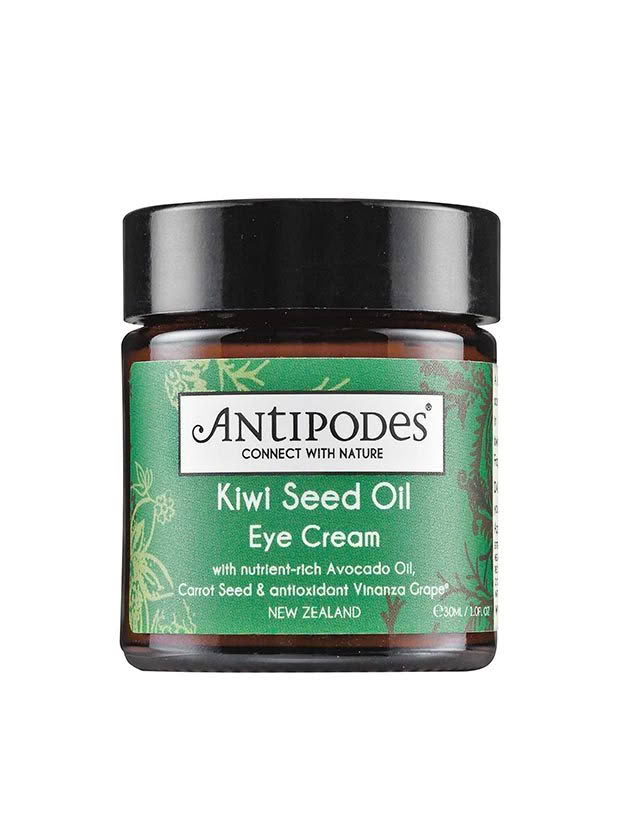
Antipodes. Claim: Scientifically validated organic beauty brand. Number one seller: Kiwi Seed Oil Eye Cream, $64.
“We love natural,” agrees Snowberry founder Soraya Hendesi. “It’s why we cultivate 8000 native plants at the Snowberry Gardens [north of Auckland]. But we also know that most people want proof that the skin care they use will truly help to avoid the signs of premature skin ageing.”
- Manuka Doctor. Claim: Award-winning purified bee venom and manuka honey range. Hero: ApiNourish Rejuvenating Face Mask, $70.
- The Herb Farm. Claim: One hundred per cent natural skin care handcrafted by a company that genuinely cares for its customers. herbfarm.co.nz Latest launch: Radiance Boost Facial Serum, $40.
- Evolu. Claim: Results for the skin, delight for the senses. Fan favourite: Facial Serum, $65.
How do you create a successful brand? Research the market and find a gap, tailoring your product so that it meets a need? Or do you develop it out of idealism and fascination; designing something you believe is so good others can’t help but want it? For most natural beauty companies, it’s a bit of both.
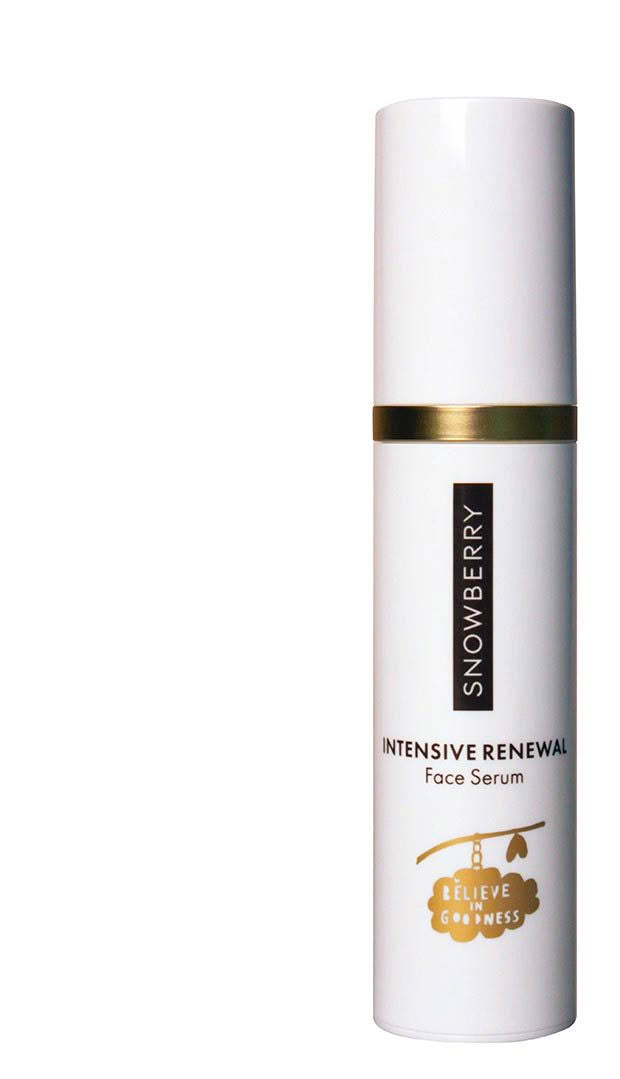
Snowberry. Claim: Skin care that transforms lives. Hero: Intensive Renewal Face Serum with eProlex, $126.
Science “geek” Elizabeth started Antipodes with $400,000 of her own capital – money she made from the sale of a Wellington B&B called Ruby House. It was initiated by an interest in naturopathy, which she studied while her children were very young. The science side of the brand is her main motivator. “Antipodes has a strong focus on in-vitro investigation and human clinical trials,” she says. “This is a unique approach for a natural brand, and we’ve invested heavily in scientific research.”
Also rooted in science – but on a slightly bigger scale – is Dr. Hauschka. Developed by Austrian chemist Rudolf Steiner, the brand evolved from anthroposophical medicine, which doesn’t view disease as a purely physical problem, but one that stems from mental, emotional and spiritual causes. Now one of the world’s most notable natural beauty brands, Dr. Hauschka’s respect for raw ingredient quality extends to biodynamics, a fundamentally holistic, ethical and ecological approach to growing and processing plants, whether they’re for the beauty counter or the dinner table.
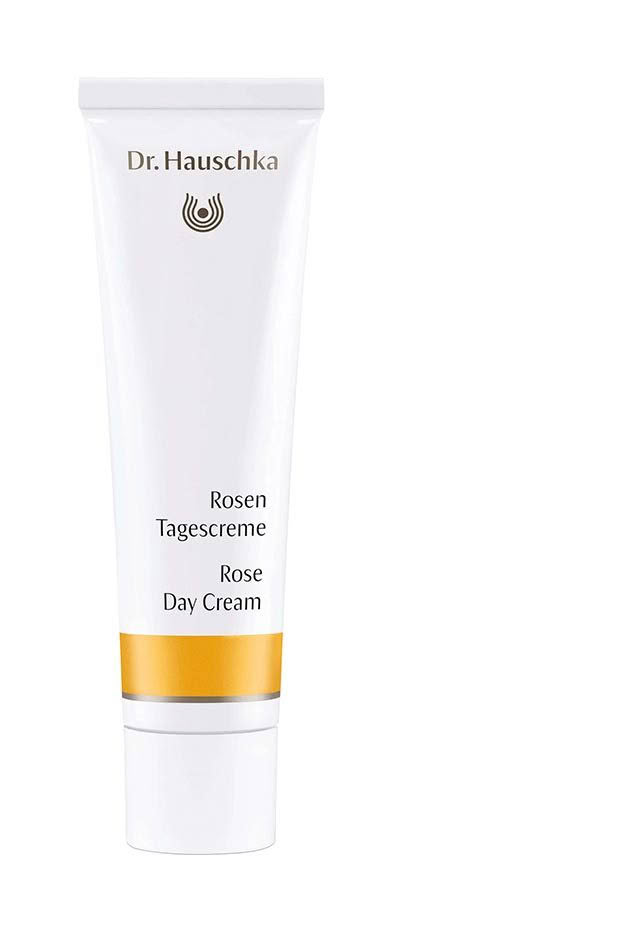
Dr. Hauschka. Claim: Natural skin care pioneer. Biodynamically grown products with NATRUE certification. Hero: Rose Day Cream, $59.
Because of its isolation, New Zealand has evolved a variety of plants and natural substances, many of which can’t be found anywhere else in the world. World-renowned ethnobotanist Dr Paul Cox, lauded for his ongoing search for new medicines from plants, picks kumarahou, a Māori healing plant with a wealth of tradition behind it, as having huge potential in the field of beauty. Kumarahou and other indigenous botanicals like harakeke and manuka are used in many New Zealand beauty brands, but they are mainstay of Living Nature, the country’s first certified natural skin care company.
“Over the past three decades, we have developed a range of unique skin care products harvested from native botanicals that are formulated specifically for certain needs,” says the brand’s Chelsea Evans. “For example, our Hydrating Toning Gel – one of the range’s oldest products – is a unique toner that contains harakeke flax gel to tone and hydrate skin.”
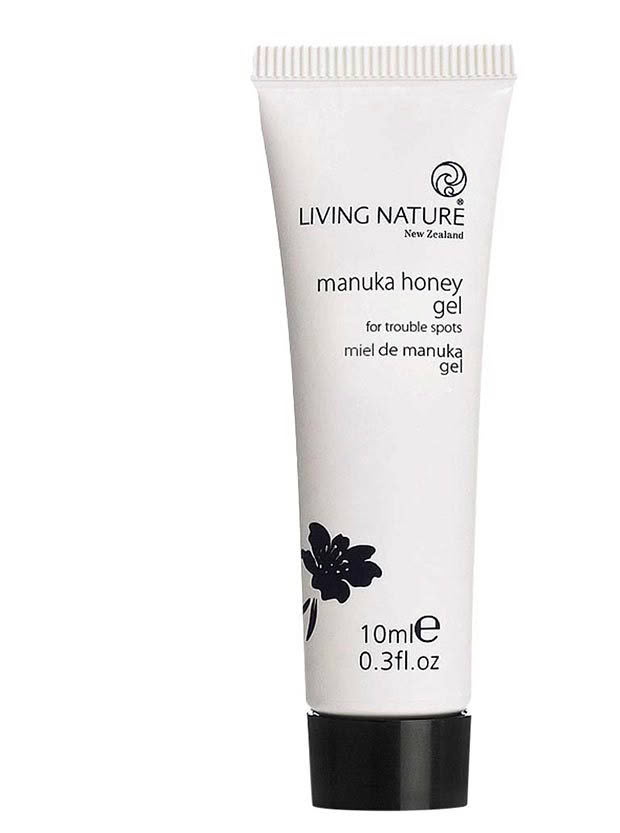
Living Nature. Claim: New Zealand’s original certified natural skin care company. Bestseller: Manuka Honey Gel, $35.
But Corinne Morely, of Trilogy, which just celebrated its 15th birthday, has a note of caution when it comes to sourcing natural ingredients. “The planet’s resources are not limitless, so it’s important that sources are sustainably managed for the future. With this as a global issue, we are on a sustainable journey acting as a responsible brand and driving the message for change along with our loyal fans. “We’re seeing the beginning of a major shift in the influence customers have over how companies behave, particularly in the world of social media where brands can easily be called out if they are not acting responsibly – it helps to bring the accountability back to the brand.”

Trilogy. Claim: Champion of the natural beauty-oil trend. Known for: Certified Organic Rosehip Oil, $48.
But, although important, it can take more than A-grade ingredients, scientific results and Insta-approval to sell those environmentally friendly jars and pots. Sometimes, the consumer needs a heartfelt story. Enter Nellie Tier, a business started by two close friends, which still mixes its products by hand.
“Our range focuses on the age-old practices of phytotherapy and aromatherapy, sourcing the natural world for plants that can heal, protect and nourish,” says Victoria Porter-Andrews, who represents one of the three generations of Porter women working on the brand.
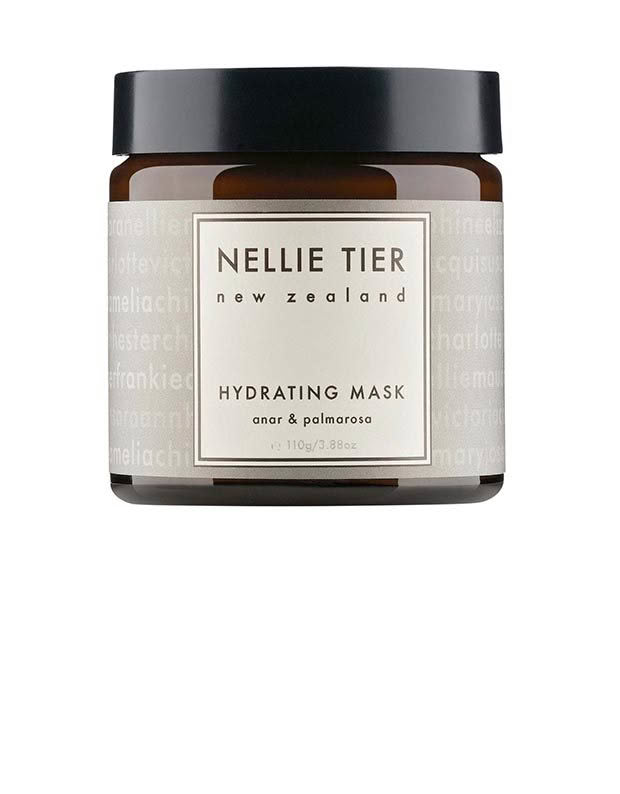
Nellie Tier. Claim: Effective, honest, natural and ethical. Much loved: Anar & Palmarosa Hydrating Mask, $45.
“We infuse oils, and make herbal teas and floral waters to add to a very special selection of botanical extracts – then we blend in small batches to ensure quality and freshness.”
Family also comes first at Matakana Botanicals, a brand that shares the same stable as Les Floralies, the body care company started in 1988 in the basement of entrepreneur Colyn Devereux-Kay’s Auckland home. Colyn, always on the hunt for ingredients to make her products better, once rang Wattie’s to find out what they did with their used peach stones.
“We underestimated a large eight-wheeler truck turning up filled with fermenting peach stones,” says her son Danvers, who now owns both brands. “We were the first Kiwi company to launch premium body care and room fragrance products almost 30 years ago under our Les Floralies brand, and we are still evolving today.”
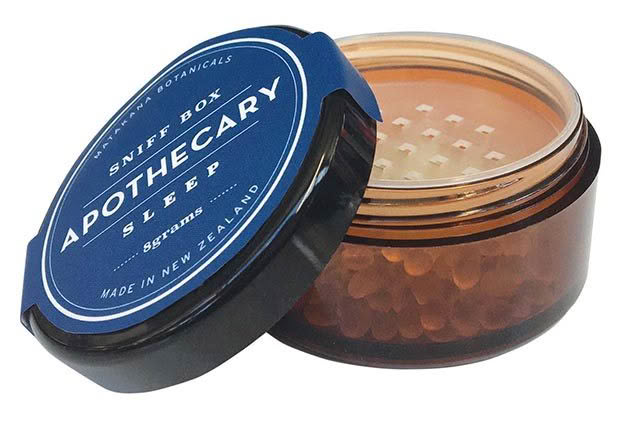
Matakana Botanicals. Claim: A collection of eco-luxe body care and room fragrance brands, all inspired by places Kiwis enjoy. Much loved: Apothecary Sniff Boxes, $10.
Over at Linden Leaves, founder Juliet Blair also talks about the personal connection between brand and consumer. “Each bottle of our body oil takes about 10 days to make, as every one is carefully hand-filled from handpicked, prepared and freeze-dried botanicals that are then drenched in natural, aromatic oils, and topped up as the oil absorbs into the dried botanicals, plumping them out to look beautiful and fresh again.”
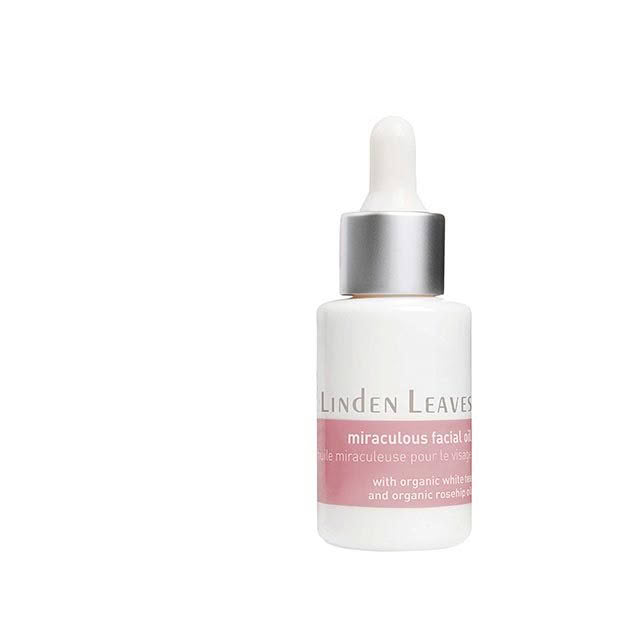
Linden Leaves. Claim: User of top-quality natural ingredients to nourish the skin and sophisticated scents and beautiful presentation to nurture the soul. Hero: Miraculous Facial Oil, $65.
Newcomer Sally Richards of bee yü, a honey-based skin care range launched a year ago, says brand loyalty is one of the biggest issues her company faces.
“Woman are very loyal to the brand they are using,” she says. One of bee yü’s biggest tasks is education and awareness; spreading the word that what consumers put on their skin is almost as important as what they put in their mouths. As far as Sally is concerned, the industry still has a way to go when it comes to spreading that message.
“I saw a really interesting study where people on the street were asked to name one ingredient in their skin care and hair care, and nobody could. Scary really.”
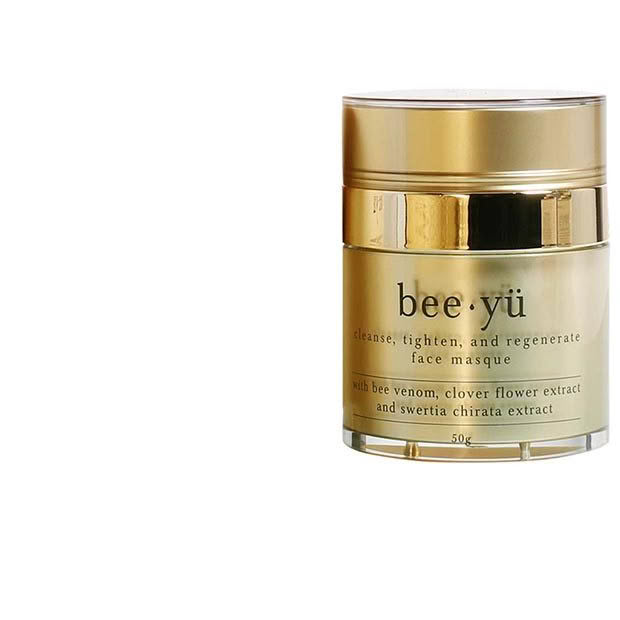
bee yü. Claim: Natural skin care with scientifically proven active ingredients at therapeutic strength. Fan favourite: Tighten & Regenerate Face Masque, $128.
Plantae’s Erin Parry also sees more scope for greater consumer awareness: “In New Zealand we don’t have any labeling laws restricting the use of ‘organic’, ‘natural’, ‘sustainable’, or other similar terms. This leads to a lot of brands taking advantage of consumers’ interest in purchasing them. So one of the issues we face is educating consumers on the importance of supporting only brands that have been appropriately certified as organic, sustainable and natural.”
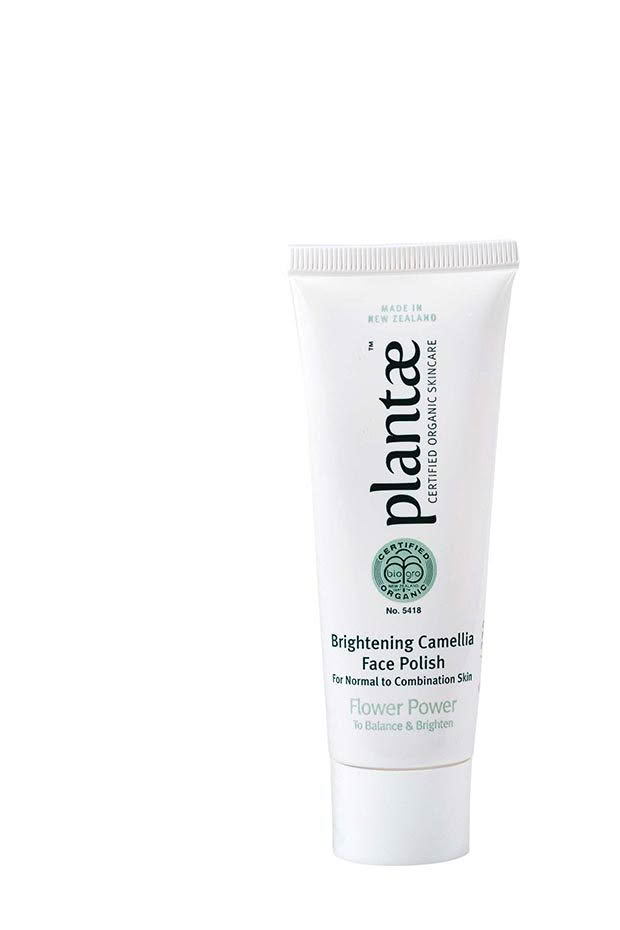
Plantae Certified Organic Skin Care Claim: New Zealand’s purest skincare. Fan favourite: Brightening Camellia Face Polish, $40.
So how do consumers know what brands to trust? Price is often a good indicator, says Weleda’s Helen Wilkes. “If it is low cost, it is highly likely that it’s not natural or organic. We recommend to always read the label, review the ingredients panel and look for authentic certifications.”
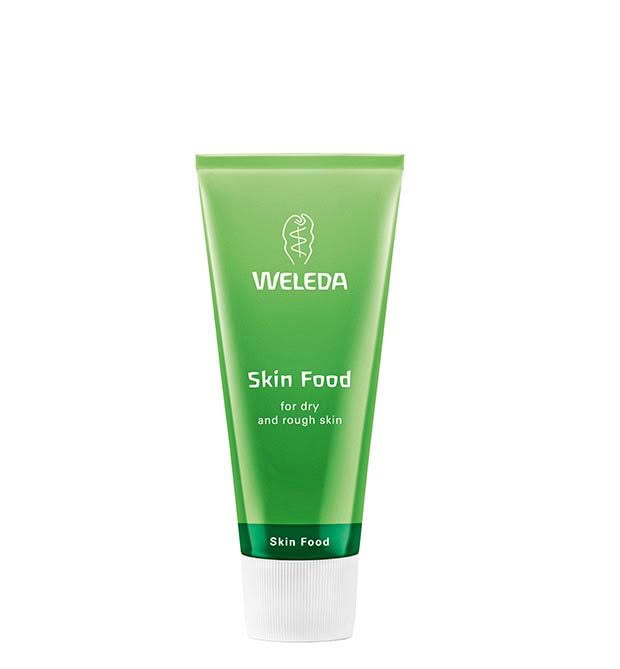
Weleda Claim: World’s leading manufacturer of certified natural and organic skin care. Hero: Skin Food, $23.
STOCKISTS
Antipodes, antipodesnature.com
Evolu, evolu.com
Herb Farm, herbfarm.co.nz
Manuka Doctor, manukadoctor.co.nz
Snowberry, snowberry.com
Dr Hauschka, dr.hauschka.com
Living Nature, livingnature.com
Trilogy, trilogyproducts.com
Nellie Tier, nellietier.co.nz
Matakana Botanicals, matakanabotanicals.co.nz
Linden Leaves, lindenleaves.com
bee yu, beeyuskincare.co.nz
Plantae, plantae.co.nz
Weleda, weleda.co.nz
Love this story? Subscribe now!
 This article first appeared in NZ Life & Leisure Magazine.
This article first appeared in NZ Life & Leisure Magazine.
